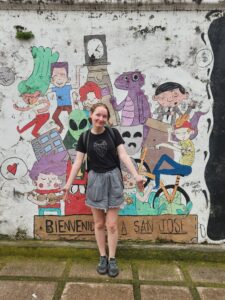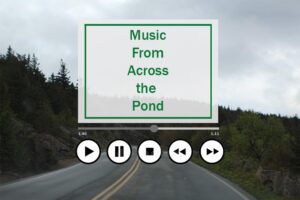There are few tasks more challenging than laying siege to the near-impenetrable language barrier. Sure, you can take introductory language courses, and yes, Google Translate exists, but these alone do not properly equip a person with the necessary tools to scale the foreign language blockade. For me, there were two mentalities I embraced while abroad in Torino, Italy last spring that helped me fruitfully engage with the community. Let me explain to you how putting myself in uncomfortable situations and engaging in complicated conversation topics helped me break the language barrier.
Unfortunately, avoiding the use of a foreign language is very easy in a European country like Italy due to the prevalence of English. Unless you go out of your way to use the local language, comfortably getting by with English for a few months is very doable. During my first few weeks in Torino, I did exactly this. Admittedly, I did give Italian the old college try at first. Every time I went to a cafe I would use rehearsed phrases when ordering my coffee. However, the baristas always noticed my incompetence and would switch to English to save time and energy. It was embarrassing to know that nearly every Italian knew more English than I knew Italian. Eventually, I became too comfortable with simply asking if people spoke English, which they usually did, leading into every encounter.
It was not until I put myself into uncomfortable situations that forced me to use small amounts of Italian that I began to chip away at the language barrier. One such situation happened on a weekend when I visited my relatives in a small village about an hour from Torino. While driving down the road with my cousin, a man doing yard work signaled to us. My cousin, who spoke no English, pulled the car over and motioned for me to get out and follow him. Together, we walked into an old barn that belonged to the man who signaled to us.
After offering us some wine he had made himself, he and my cousin began chatting. At first, I was very intimidated and felt extremely out of place. However, my brain began to rewire itself; bits and pieces of the conversation started to make sense. While my brain hurt from the strain of listening to and formulating Italian words, the time I spent in that barn provided me with the exact kind of linguistic discomfort I needed to break the language barrier. All I used were a few simple words, some elaborate hand gestures and many universally understood facial expressions.
Disposing of the crutch that is the English language and forcing myself to use Italian was only the first major step in breaking the language barrier. Once I became comfortable with placing myself in uncomfortable situations, I started to engage people in complicated and meaningful topics. While it was easy enough to talk to locals about weather and food, it was a completely different experience to discuss subjects like politics or sociological perspectives.
One night in a bar, my friend and I ran into a young man who was fascinated by the fact that we were from the United States. He wanted to practice English and we wanted to practice Italian, so we engaged with him in a mutually beneficial dialogue. After some introductions, the conversation turned to a discussion on personal liberty. The man did his best to give his opinions about how he was dissatisfied with the politics in Italy and how he wished to experience life in the United States. Similarly, we tried to communicate to him how life was nowhere near perfect in our own country. While a lot of information was undoubtedly lost in translation, the interaction was still incredible. I exchanged phone numbers with the man and we made plans to meet again. This kind of conversation yielded a much more powerful result than if I had to converse with the man about simple topics for which I knew the most words.
Becoming comfortable with a foreign language is not an accomplishment that happens passively — especially if English is your first language. It is an exercise in patience and determination. If you are to ever go abroad, try and push yourself to talk with people who do not speak your language; there is much knowledge and growth to be found in discomfort.








